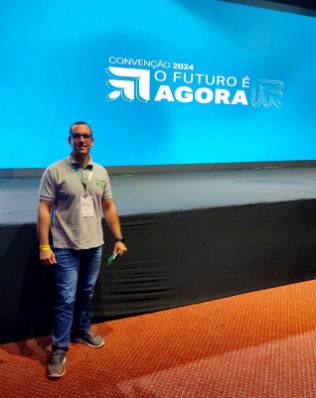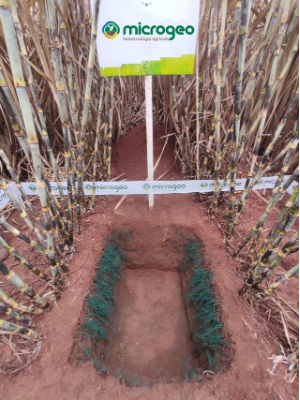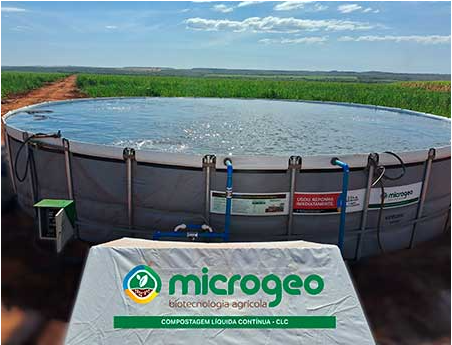
Exhibition time: 17-19 March, 2026 Shanghai, China
 中文
中文

Exhibition time: 17-19 March, 2026 Shanghai, China
 中文
中文
Biological fertilization significantly impacts plant resistance induction and the suppression of pests and diseases, stated Luís Eduardo Pessato, Market Development Coordinator at Microgeo.

According to Pessato, many Brazilian farmers have already improved the soil-plant relationship and have seen numerous positive results, including improved quality, profitability, and productivity through biological fertilization using Microgeo Biotechnology.
"When we perform genetic improvement, the goal is often to increase productivity, which can lead to a reduction in plant health and natural defenses," he explained. To mitigate this loss in plant protection, Pessato suggested using tools that help balance the production system.
He explained that plants "recruit" microorganisms in the soil, receiving benefits such as nutrient fixation and protection against pests and pathogenic diseases. Therefore, regulating the types and quantities of microorganisms in the area was crucial.
"In terms of plant production, there must be a synergistic relationship with microorganisms that will perform certain processes. This ecological interaction is a positive point for crop success," he said.
The biological pillar is essential for maintaining balance in the cultivation system and providing overall plant protection. Without biological fertilization, the environment becomes imbalanced and more susceptible to pests and diseases, directly affecting agricultural production and profitability.
"Interestingly, about 40% of producers do not adopt any conservation measures in their production systems, which directly affects soil biology," Pessato emphasized.

He noted that biological fertilization ensures biodiversity in the area and more significant interaction between microorganisms and plants. Moreover, practices such as crop rotation and no-till farming also support this process.
The specialist explained that the less physical interference, the more efficient the soil microorganisms are. Therefore, no-till farming has a positive impact on soil biology.
Microorganisms introduced into the soil by Microgeo's biological fertilizer create a "biological barrier in the rhizosphere." Microgeo's technology consists of a balanced component that nourishes, regulates, and maintains the continuous production of biological fertilizer through Continuous Liquid Composting (CLC).
The manufacturer claimed to be the "only one in the market that manages and restores the soil microbiome."
According to them, Microgeo's biotechnology is unique and pioneering because it "restores the soil microbiome by increasing the diversity of microorganisms from the same region, maintaining the 'biological fingerprint' through the CLC Process."

The company's technical team stated that the biological fertilizer produced with Microgeo can be applied via spraying or fertigation, regardless of climatic conditions, and can be used alongside other inputs such as chemical or biological pesticides and fertilizers. The company explained that the more beneficial microorganisms are present, the greater the plant's protection against root system attacks.
These beneficial microorganisms compete with harmful ones for space near the root system, naturally restricting the activity and attack of opportunistic pathogens. Plants recruited these microorganisms for their defense, offering food sources formed by root exudates in return. Additionally, biological management ensured microorganism diversity in the soil.
"This is crucial because, besides combating opportunistic pathogens, they induce the formation of antibiotics that act directly against these invasive microorganisms. It works like a vaccine, providing preventive effects for the plant," Pessato said in conclusion.
From:AgNews